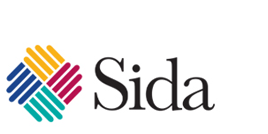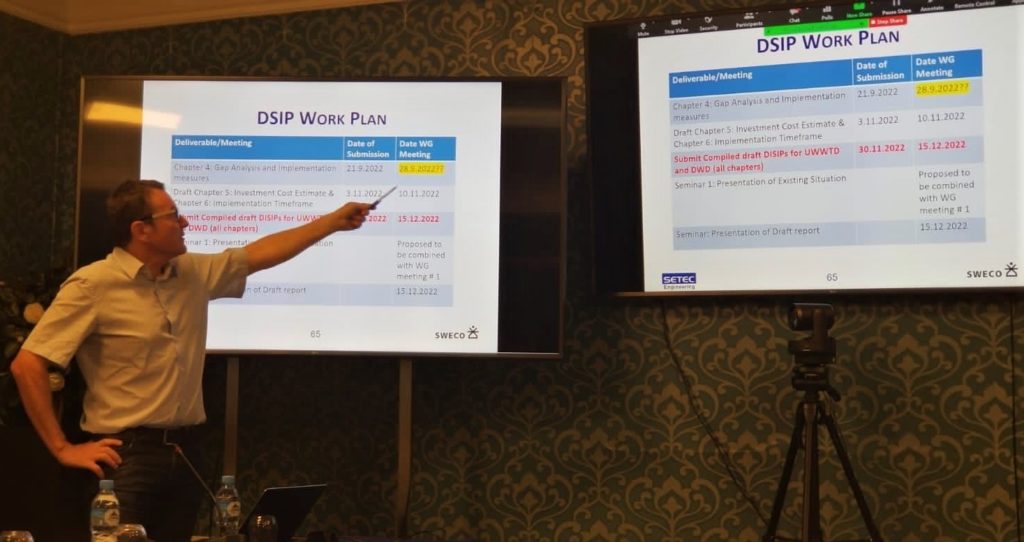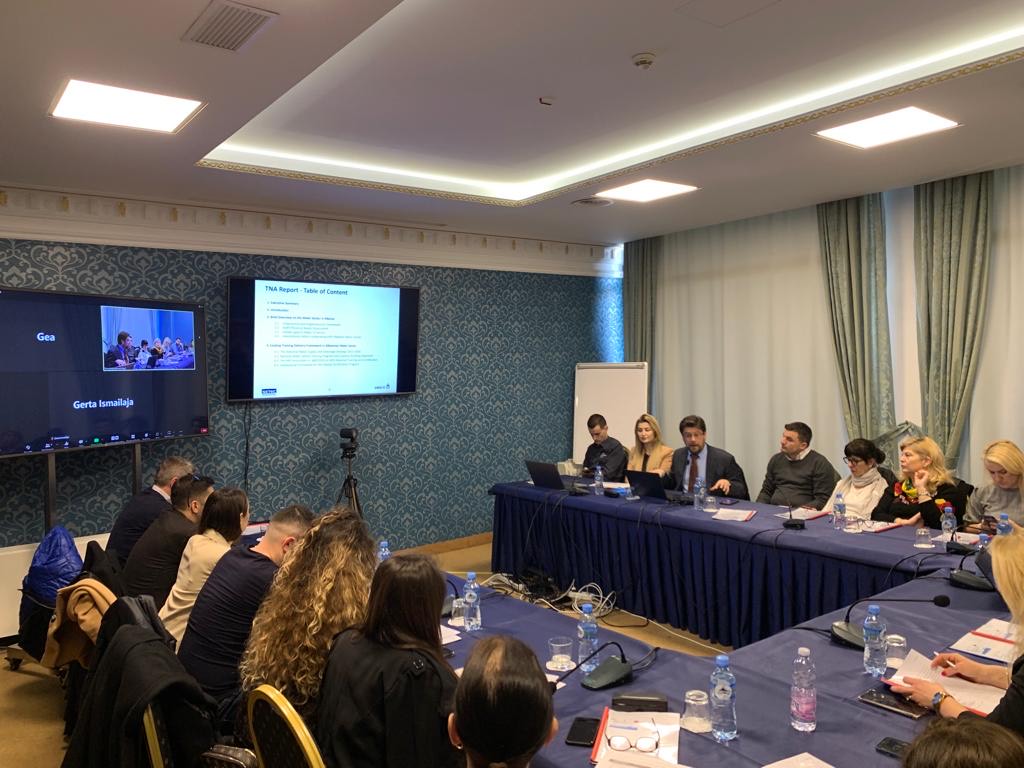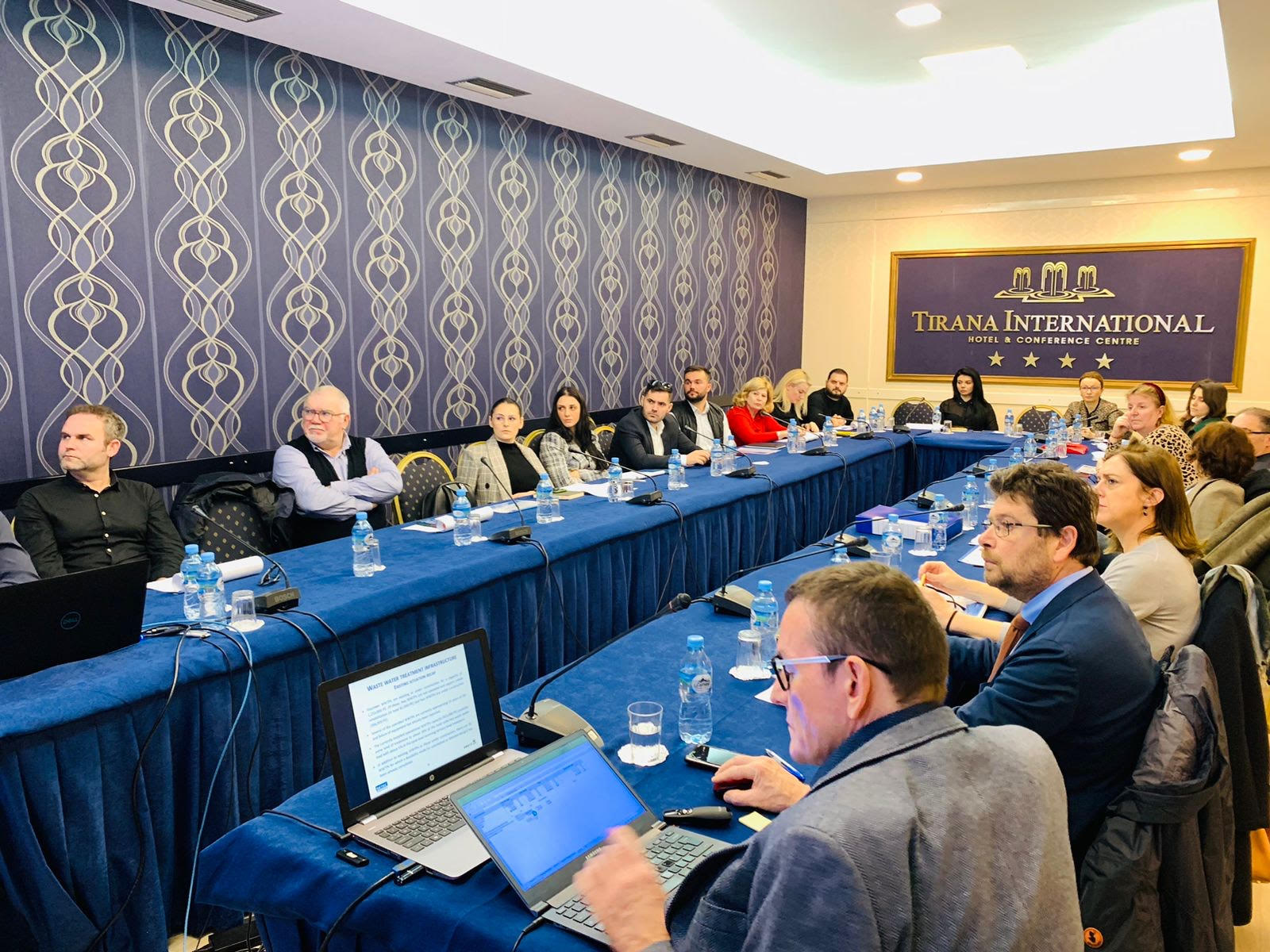On 29 June the DSIP Working Group for the DWD gathered for a workshop in Hotel Tirana International to discuss challenges and gaps that entities at the central and local levels might face until the full implementation of the new Decision of the Council of Ministers no.352, May 2022 as a continuity of the reform of the water sector, under the tasks of NIPS project.
NIPS project team made a thorough presentation on the assessment, findings, conclusions, and recommendations as outlined in Chapter 3 of the report on the Drinking Water Directive Implementation Plan. The key components presented were:
• Legal framework transposition of directive
• Institutional framework
• Water demand and and production needs and
• Water quality monitoring and laboratories
Legal and institutional framework
The Directive has been almost fully transposed into the Albanian legal framework, whereas the last legal aspects and amendments are expected to be finalized within 2024.
Ministry of Infrastructure and Energy and AKUM as leading entities in implementing the reform of the water sector have already moved forward by signing agreements for agglomeration with Municipalities for some leading by-size companies in the country such as Durres , Korca etc.
Water demand and production needs
The Albanian central government through the state and foreign budget has made investments in water meters to improve the results of water losses. Yet, as the representative of the Water Supply Sector Regulatory Authority (WSSRA) emphasized at this meeting, the still existing lack of water meters has brought to several companies’ water losses and commercial ones. According to the projections of the DSIP-DWD report, the need for water production on a daily basis will decrease by 2050 with 14% comparing these needs with 2020. The real water losses are foreseen to decrease from the actual rate of 45% in 25%.
The quality of water resources is generally evaluated in good to excellent quality, yet surface water bodies considered as sensitive areas remain at risk. The quantity of the unused groundwater reserves as per the 6 river basins in Albania is a total of 44.418 l/s. On the other hand, the total reserves exploits are 38 %.
Albania has sufficient high quality water supply zones. The actual official data reveals that 12.4 hours/day is the water supply service in Albania. 83% of the population are served with drinking water during 2020. 97% of the population is estimated to be served with drinking water by 2050 in the country.
Water quality
In overall drinking water quality in Albania is satisfying, with some non-compliance as per the most recent official data. The Ministry of Health and Social Protection monitors 55 water supply systems and for 2021 a total of 678 monitoring points. A significant part of the water supply infrastructure is identified as older than 40 years and service connections in poor condition. As at present none of the laboratories is accredited, capacities of 36 Local Health Care Units (LHCUs) and other sub-ordinated entities would need to be strengthened and their needs regarding training, equipment, additional staff should be investigated. providedhence drinking water quality monitoring remains a focus to the 36 Local Health Care Units and water supply and sewerage companies at the national level.
Conclusions and tasks
Participants during discussions agreed that in case of non-compliance with the required standards of hygienic and sanitary rules enforcement mechanisms that are established, should be proactive in measurements and actions, given the recommendations offered.
The NIPS project consultants agreed with participants that all key stakeholders, in order to prepare the work on Chapter 4 during the nexte meeting of the Working Group, will analyze and provide identified gaps in capacity-building needs and implementation measures.
Next meeting of the Working Group
According to the DSIP work plan, Chapter 4 – Gap analysis and Implementation measures should be prepared by end of September. A Working Group meeting was planned for discussion of this chapter. The Consultant proposed that this work group meeting will not be conducted separately for this chapter, but instead a working group meeting which will cover Chapter 4, Chapter 5 and Chapter 6 should be held end of November 2022.
The 11 working group participants in this workshop on 29 June represented the following institutions: Ministry of Infrastructure and Energy (MoIE), Ministry of Health and Social Protection (MHSP), National Environment Agency (NEA), Water Supply Sector Regulatory Authority (WSSRA), Agency for the Management of Water Resources (AMWR) and NIPS Project.
Please find further detailed information on this Workshop (Minutes of Meeting, PowerPoint Presentation) on the NIPS website (accessible only in password protecteced section)


















